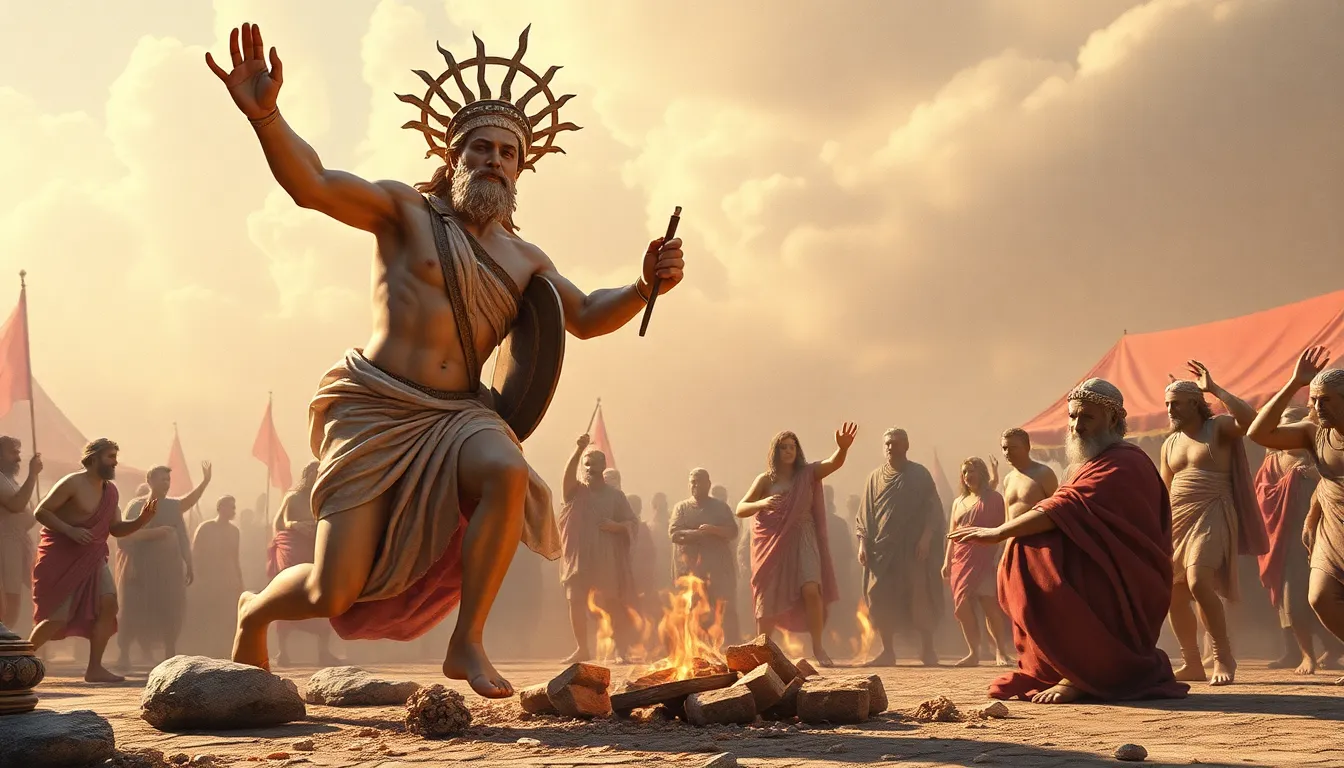The Role of Sacrifices in Greek Festivals: What Were They Really About?
I. Introduction
Greek festivals played a pivotal role in the fabric of ancient society, serving as occasions for celebration, community gathering, and religious observance. These festivals were not merely social events; they were deeply intertwined with the cultural and spiritual life of the Greeks. Among the most significant aspects of these festivals were the sacrifices made to the gods, which held profound meanings and implications.
This article aims to delve into the multifaceted role of sacrifices in Greek festivals, exploring their historical context, types, religious significance, socio-political dimensions, emotional impacts, and modern interpretations.
II. Historical Context of Greek Festivals
Greek festivals were numerous and varied, with key celebrations including:
- The Olympic Games: Held every four years in honor of Zeus, this festival combined athletic competition with religious devotion.
- The Dionysia: A festival dedicated to Dionysus, featuring dramatic performances and revelry, celebrating the god of wine and fertility.
- The Panathenaic Festival: A major Athenian festival honoring Athena, characterized by athletic games, processions, and sacrifices.
These events were crucial for societal cohesion, religious expression, and the reinforcement of communal identity. Over time, these festivals evolved, reflecting changes in religious beliefs, societal norms, and political landscapes.
III. Types of Sacrifices in Greek Festivals
In Greek festivals, sacrifices came in various forms, each with its own significance:
- Animal Sacrifices: Typically involved the slaughter of animals such as sheep, goats, and cattle, symbolizing the offering of life to the gods.
- Plant Offerings: Included fruits, grains, and flowers, which were often placed on altars as symbols of gratitude and respect.
- Libations: The pouring out of wine or oil as an offering to the gods, representing the sharing of resources with the divine.
These sacrifices could be ritualistic, formalized acts performed according to specific guidelines, or spontaneous offerings made in moments of personal or communal significance. The choice of offering often reflected the relationship between the individual or community and the deity being honored.
IV. The Religious Significance of Sacrifices
At the heart of Greek sacrifices was the desire to connect with the divine. Sacrifices served several religious purposes:
- Appeasing Deities: Offerings were made to gain the favor of the gods, seeking blessings for health, prosperity, and protection.
- Community Bonding: Participating in sacrifices fostered a sense of belonging and unity among community members, reinforcing social ties.
- Mythological Narratives: Many myths involve sacrifices, such as Prometheus’s offering to the gods and the subsequent consequences, exemplifying the complexities of divine-human relationships.
V. The Socio-Political Dimensions of Sacrifices
Beyond their religious significance, sacrifices in Greek festivals also had important socio-political implications:
- Political Expression: Festivals provided a platform for political expression, where leaders would demonstrate their piety and commitment to the city-state.
- Social Class Involvement: Sacrificial practices often involved various social classes, from the elite to the common people, reflecting the inclusivity or exclusivity of certain rituals.
- Power Dynamics: The manner in which sacrifices were conducted could reflect underlying power structures, with certain groups wielding more influence over religious practices.
VI. The Psychological and Emotional Aspects of Sacrifices
Sacrifices also had significant psychological and emotional dimensions for participants:
- Community Cohesion: Engaging in rituals strengthened community bonds, reinforcing shared beliefs and values.
- Cathartic Experience: The act of sacrificing could evoke powerful emotional responses, allowing participants to express grief, joy, or devotion.
- Psychological Interpretations: Some scholars interpret sacrifices as a form of catharsis, where the release of emotions through ritual contributes to psychological well-being.
VII. Modern Interpretations and Legacy of Sacrifices
In contemporary scholarship, ancient Greek sacrifices are viewed through various lenses:
- Modern Scholarship: Researchers explore the complexities of sacrificial practices, examining their cultural, religious, and social significance.
- Influence on Contemporary Rituals: Many modern rituals and festivals draw inspiration from ancient practices, reflecting the enduring legacy of these traditions.
- Ongoing Relevance: Discussions around sacrifice continue to resonate in cultural and religious studies, highlighting the universal themes of devotion, community, and identity.
VIII. Conclusion
In summary, sacrifices in Greek festivals were multifaceted practices that transcended mere religious observance. They served as integral components of social identity, political expression, and emotional release. Through the lens of sacrifice, we can gain deeper insights into the values, beliefs, and dynamics of ancient Greek society.
As we explore the role of sacrifices in different cultural contexts, we can uncover the shared human experiences that continue to shape our understanding of community and spirituality.




